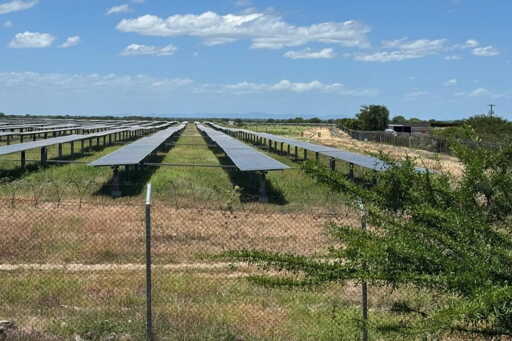CHOLUTECA, Honduras — Under the slogan “Without human rights, there is no energy sovereignty,” more than 100 community members and activists gathered in mid-July at the Casa Real Hotel in Choluteca, a city in southern Honduras near the Nicaraguan border. At the event, participants — a mix of nonprofit leaders and community members — questioned the fairness of large-scale renewable energy projects in their territories, claiming the projects leave them without water and forests, and exposed to extreme heat. Yet reliable data on the impacts of renewable energy projects in southern Honduras remain scarce. In Honduras, where fossil fuels account for about 38% of the electricity supply, and where the World Bank estimates that about 1.4 million people lack access to electricity, experts told Mongabay that there’s an urgent need for an energy transition. That need will grow as the climate warms and national energy demand rises by a projected 39% from 2025 to 2035. Yet, community members in southern Honduras say large renewable energy projects come at the expense of the environment and of their well-being. They blame solar, wind and hydroelectric projects for deforestation, droughts and floods, and describe unbearable temperatures near solar farms. Some who have opposed the large-scale renewable energy projects have been threatened, displaced or even killed. Families living adjacent to solar projects in Choluteca report still lacking access to electricity. Many say they don’t feel the benefits of the energy transition; they either pay high prices for power or remain without, while the jobs…This article was originally published on Mongabay
From Conservation news via this RSS feed


